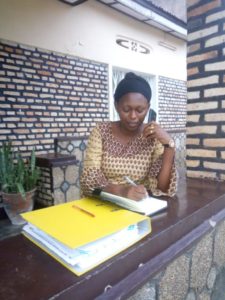Most of us are absorbing a tsunami of news bulletins and articles about COVID-19 on a daily basis. From China to Italy, and then in our own communities, we have followed the alarming progress of the pandemic through the Global North.
But from now on, we may see increasing media coverage of how the virus is belatedly affecting Africa. The challenges which leave people in our society more vulnerable – underlying medical problems, having jobs that make social distancing impossible, poverty – are all present in the Global South to an even greater degree.
What is the outlook for Africa?
Imperial College, London estimates 300,000 could die in Africa, while the World Health Organisation warns 10 million could become severely infected. However, it is impossible to generalize about Africa’s fifty-four nations. Countries with good governance and an efficient public health network at grass roots level will hopefully do better than places in which the government’s influence does not extend much beyond the suburbs of the capital city.
On the positive side, Africa’s population is young, although many people have been malnourished all their lives. Cities are overcrowded, while rural areas are often without access to running water or soap, and without refrigeration, meaning people must go out regularly to find food. Many earn their money from informal work, day-by-day, selling food in a market, driving a motorbike taxi, or working construction. How can lockdown succeed in such a situation, or in a refugee camp? What is the outlook for Africa, and how is Network for Africa reacting?
Sharing the message on prevention

Our partners in Africa tell us that the countries with competent leadership will weather the virus best. Uganda and Rwanda, where we work, are good examples. Both instituted lockdowns before many western countries did; although they lack resources in their hospitals and clinics, they have been quick to send messages about prevention to villages, via their community health networks. These networks notice if strangers arrive, they test them and trace anyone with whom they’ve had contact. In the case of Uganda, the government had a plan in place in the event of a pandemic, and they closed schools and other public gatherings as soon as COVID-19 appeared in a next-door country.
We also work in Sierra Leone, where the experience of Ebola, and the lessons learned, are still fresh in people’s memories.
In Rwanda, Network for Africa partners with Survivors Fund. Together, we provide counselling and training for Rwandan genocide survivors. Director Sam Munderere says the lockdown means group counselling now takes place over the phone.
“We are also finding that people’s immediate needs are for food and money, so we are struggling to find the donations to offer help where it is needed. Many people live from day to day at the best of times, so if they are unable to leave the house, they have no income coming in to feed their families. This is especially important with people taking HIV medication which requires proper nutrition. In Rwanda, during the genocide commemoration period, it is traumatizing to see police and other security personnel in the streets, road blocks and public announcements telling people to stay indoors, seeing foreigners evacuated on planes because it brings back memories of the time of the genocide.”
We definitely expect that the needs of the communities we serve in Africa will grow as the spread of COVID-19 increases across Africa. As we find new ways to support those communities, we invite you to continue or increase your support for our work. If you are able to donate during this difficult time, we thank you and wish you good health while you are in lockdown.
Supporting Africans During Lockdown